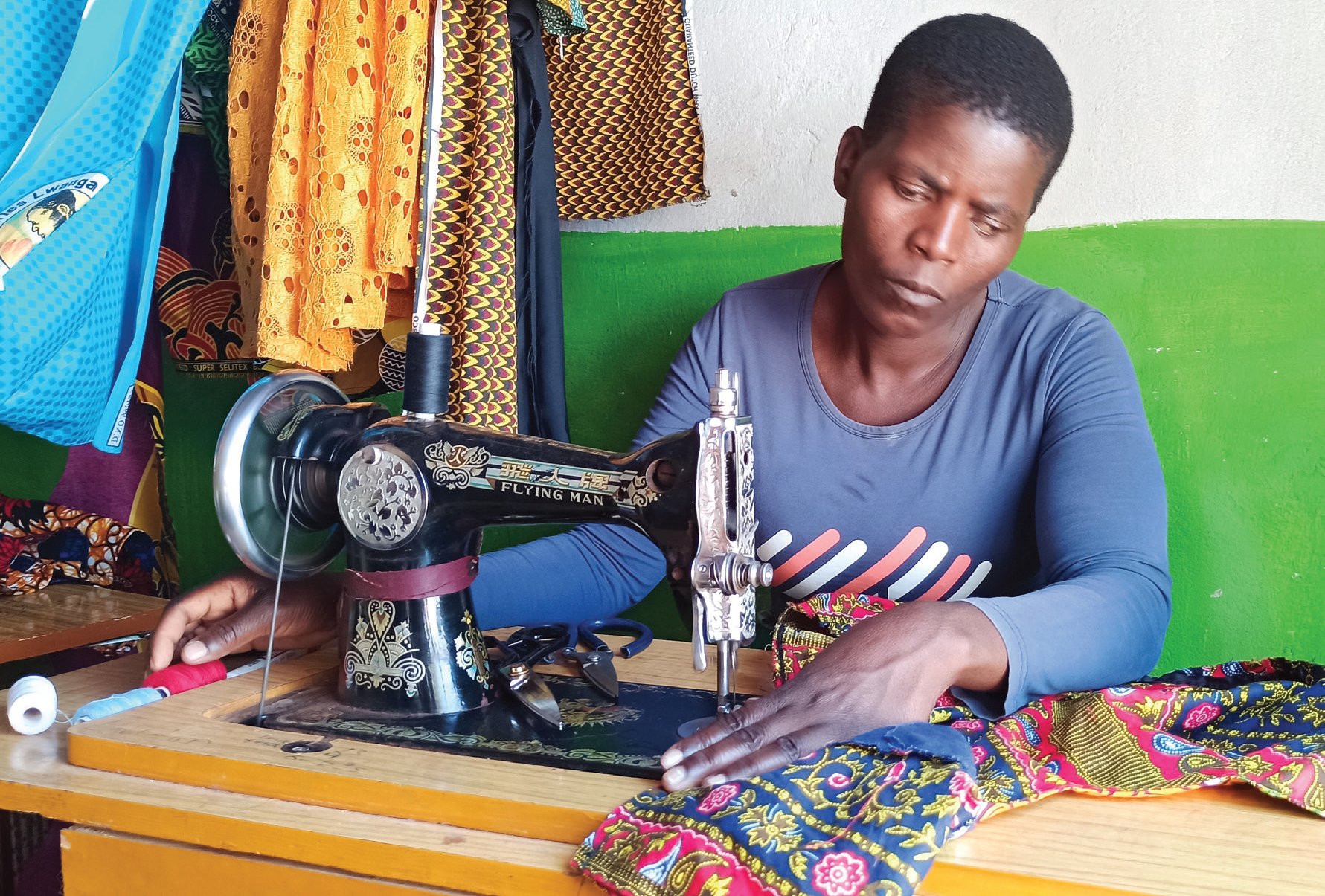Alice’s stitch in time
Alice Zimba, 27, grew up wishing she took three meals a day. Her parents could only afford one per day, especially during the rainy season when food shortage bites harder.
During the lean season, the woman in Tchuwa Village, Traditional Authority Mbelwa in Mzimba, often went to sleep hungry after a day of washing well-off neighbours’ clothes for meagre pay.

“It was hard labour,” she says. “We had to wash a big heap to earn enough money to buy food.”
The piecework left her aspiring to learn tailoring. In her mind, she saw fashioning and mending clothes giving her enough money to shatter poverty.
Now a mother of three, Zimba, who quit primary school to marry while a teenager, is living her dream.
She regrets wasting time in marriage. Instead of easing her financial hardship, she says, marrying young plunged her into worse hunger and poverty.
“Nothing really changed. My husband wasn’t working and crop yields were low because we couldn’t afford farm inputs. We survived on piecework and begging from our parents,” she recalls.
Zimba fled the marriage and returned to her parents.
She has been receiving monthly social cash transfers since 2018, but the cash-outs designed to lessen the hardship of the poorest of the poor do not meet all her needs.
Zimba started selling tomatoes by the roadside to boost her income, but the business flopped.
She started learning tailoring this year when she became a beneficiary of the Pathways for Successful Transition (Past) project implemented by Save the Children in partnership with the Creative Centre for Community Mobilisation.
The project is part of the Financial Access for Rural Markets, Smallholders and Enterprises (Farmse) programme funded by the International Fund for Agricultural Development (Ifad). It offers vulnerable rural households access to financial services to help them walk out of abject poverty.
However, Past targets women-headed families and the youth who get social cash transfers.
As part of the skills development initiative, Zimba is receiving training in tailoring and her skills are already trusted by many in her neighbourhood.
“The beginning was never easy, but it is rewarding. With few tailors in my area, this is a hot business; it is changing my life,” she explains.”
Zimba now earns enough to feed her children and meet their needs without any pressure to remarry.
“I work hard so that my children do not have to endure the hardship I faced as a girl. I hope tailoring will change our story and lift the whole generation out of poverty,” she states, looking at the roofing of Miston Jeka’s shop where she sews garments of different shapes and sizes.
Zimba belongs to a village savings and loans group which offers members soft business loans from their contributions.
Penjani Nyirongo, 19, a last born in a family of five, is also learning tailoring from Jeka. He and his siblings did not complete basic education.
“We all married young and our parents couldn’t stop us because they were farmers who live hand-to-mouth,” he says.
Nyirongo’s parents receive social cash transfers, which barely sustains them. They hope the teen tailor will support the family to beat poverty when he opens a tailoring shop.
Zimba and Nyirongo are among six apprentices at Jeka’s shop.
“All of them are beneficiaries of the social cash transfer programme, which targets the most vulnerable households in our communities. Therefore, it is important for them to have an extra source of income to break the chain of poverty,” Jeka says.
According to the 2020 Integrated Household Survey, just about one in 10 workers in Malawi gets a wage, salary or commission. The findings indicate that half of the workforce engages in ganyu—casual or part-time labour.
O’Brien Mandala, a Farmse specialist responsible for efforts to help the ultra-poor graduate from the monthly social cash transfers, says financial inclusion has triggered visible improvements in the beneficiaries’ livelihoods.
“Although most beneficiaries cannot read or write, we are making progress to support households graduate from the ultra-poor category. Through trades and mindset change lessons, their livelihoods are being transformed, “he says.
About 4 222 households in Mzimba have benefitted from the K1.6 billion project implemented by Save the Children in partnership with Past promotes sustainable livelihood approaches—including adolescent skills for successful transition, life skills for success and positive youth development—to uplift the most vulnerable.





